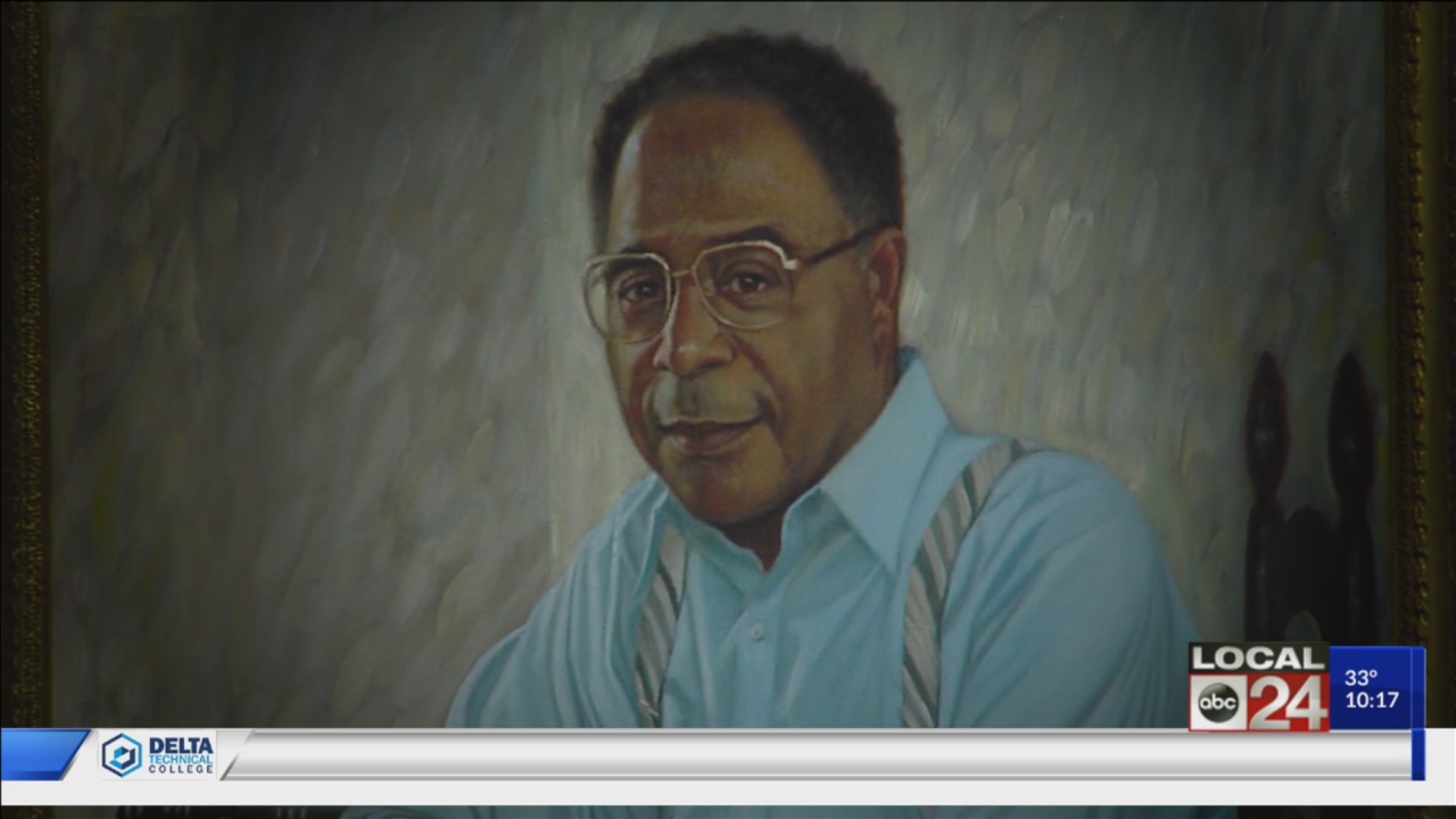West Tennessee native Alex Haley is perhaps best known for writing the book behind the ABC mini-series “Roots.” His childhood home is just 50 miles from Memphis in Henning. We explore the hidden history behind the best-selling African-American author of all time, by hearing first-hand accounts of his life from a Mid-South woman who knew him well.
“His mates there. That’s where he started it all,” said Alex Haley Museum’s Former Executive Director Charletta Campbell Norfolk.
This is the boyhood home of Alex Haley. His mother, Bertha Haley, also grew up in Henning. The family dining room, breakfast area, and kitchen is left as it once was. I sat in the parlor with Norfolk, who shared Haley family stories and memories of the literary giant.
“He wanted to always find the good in people, praise them, and let other people know he appreciated his hometown of Henning, Tennessee,” said Campbell.
Alex Haley followed in his father’s footsteps and attended a Historically Black College in Mississippi; Alcorn State. A year later he enrolled at Elizabeth City State College in North Carolina.
“He came home and told his dad and stepmom, ‘I’m withdrawing from school’, correct? That’s when he went into the Coast Guard,” asked Anchor Katina Rankin.
“Yes,” answered Norfolk.
His father felt Haley needed discipline and convinced him to enlist in the military. When Haley turned 18, he began a 20-year career in the U.S. Coast Guard. During his service, he began writing stories. Other sailors often paid him to write love letters to their girlfriends. After World War II he became the first Chief Journalist in the Coast Guard, a rating created for him in recognition of his literary ability.
Of his many works is ‘The autobiography of Malcolm X!’, one Norfolk says took him a while to write because trust had to be established between the two men. And then …
“One morning out of the blue, he (Malcom X) called Alex like at 4 in the morning and told him, ‘I trust you 70%’ and just hung up the phone,” said Norfolk.
Haley later became a senior editor for Reader’s Digest Magazine. In 1962 he conducted the first interview for Playboy Magazine on Jazz Musician Miles Davis. Reverend Martin Luther King, Jr.’s Playboy interview with Haley was the longest King ever granted to any publication.
“I mean it took 12 years for him to do this research,” said Norfolk.
Twelve years for him to get back to his roots, Haley’s family history going back to slavery days. It started with the story of Kunta Kinte who was kidnapped in the Gambia in West Africa and transported to the Province of Maryland to be sold as a slave. Haley claimed to be a seventh-generation descendant of Kunta Kinte. And Haley said …
“In order for me to really tell this story, I’m going to have to make a trip over to Gambia,” said Norfolk. ‘He went back to Gambia and did get on a slave ship and rode the water just to see what if felt like.”
Haley said the most emotional moment of his life occurred when he stood at the site in Annapolis, Maryland, where his ancestor had arrived from Africa in chains exactly 200 years before.
Haley died from a heart attack in 1992.
“I remember getting that phone call and them telling me Alex Haley had died,” said Norfolk.
According to the Museum’s current site manager, here’s what happened next.
“The family walked behind the hearse from the church, which is right up the hill here, behind the hearse and came to the burial site,” said Alex Haley Museum Site Manager Richard Griffin. “(They) Brought back West African soil from the actual place Alex’s family is from. They sprinkled soil over Alex’s body. The family had to dance around the open tomb in order for his spirit to be released. And, that is what happened that day, February 15th, 1992.”
Haley was buried in Henning, Tennessee, in the front yard of his boyhood home. And, in his words, “My fondest hope is that ‘Roots’ may start Black, White, Brown, Red, Yellow people digging back for their own roots. Man, that would make me feel 90 feet tall.”

